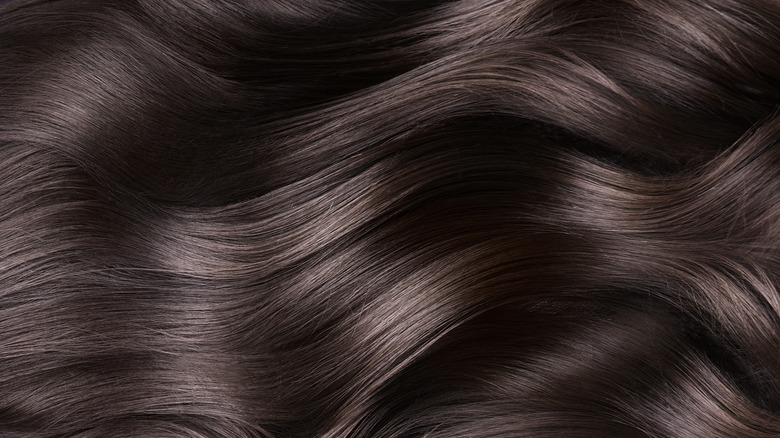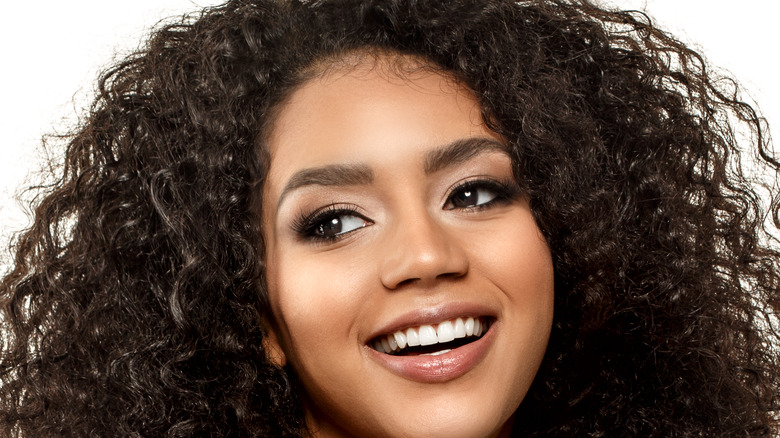The Vitamin You Need If Your Hair Won't Grow
For a lot of people, hair can be a statement of health, beauty, and identity. Your body needs certain nutrients for it to be able to grow to your desired length. According to Healthline, a lack of nutrients will not only prevent you from growing your hair but may also contribute to hair loss.
A 2011 review in Biochimica et Biophysica Acta found that vitamin A produces sebum, which moisturizes the scalp. Sweet potatoes, carrots, and kale are some foods that contain ample amounts of beta-carotene, which the body converts into vitamin A. B vitamins are essential as well, as they deliver oxygen and other nutrients to the hair and scalp. Eating whole grains, almonds, fish, and dark, leafy greens can help make sure you get enough vitamin B. If you're on a plant-based diet, be sure to take a B12 supplement, as it's primarily found in animal byproducts.
Vitamin C is necessary for collagen production and can be found in strawberries, peppers, and citrus fruits. Though vitamin D is linked to alopecia, the hair loss disease, research has yet to determine exactly how it's connected to hair growth. Mushrooms, fatty fish, and fortified foods can provide vitamin D.
Vitamin E is good for hair growth because it prevents oxidative stress. A 2010 study published in Tropical Life Sciences Research showed that people who took vitamin E after experiencing hair loss increased growth by 34.5%. Vitamin E can be found in sunflower seeds, spinach, and avocados.
These 3 minerals can help your hair grow, too
In addition to vitamins A, B, C, D, and E, Healthline says there are 3 minerals you should add to your diet for hair growth. Research links anemia to hair loss and a 2013 study published in the Journal of Korean Medical Science suggests taking iron can help. Eggs, red meat, and spinach are a few foods that are high in iron. If you take an iron supplement, consume vitamin C with it for better absorption.
Zinc helps ensure oil glands around the hair perform their job properly in terms of growth and repair. Too much zinc, however, can cause hair loss, so be careful. Zinc can be found in oysters, pumpkin seeds, and lentils.
Just about every strand of your hair is made of protein, so be sure to prioritize this macronutrient as well. A few sources of protein that WebMD recommends include lean meat, cheese, milk, and soy. If you're on the go, Greek yogurt, meal replacements, and cereal bars can also contain lots of protein — just watch out for sugar!


